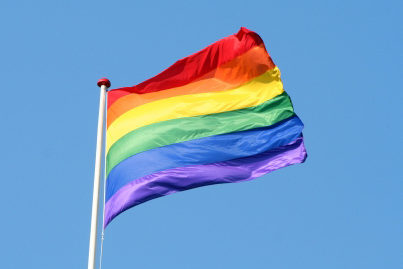
Feb 19, 2013 | News
The European Court of Human Rights today ruled that an Austrian ban on same-sex second-parent adoption is discriminatory.
The European Court of Human Rights delivered its judgment in the case of X and Others v. Austria and ruled that Austria’s Civil Code discriminates against a partner in a same-sex relationship by making it legally impossible to adopt the biological child of the other partner while permitting second parent adoptions for unmarried heterosexual couples.
The organisations that provided written submissions in this case (FIDH, ICJ, ILGA-Europe, BAAF, NELFA, and ECSOL) welcome this judgment and consider it a landmark judgment applying the European Court of Human Rights’ case law on equal treatment of unmarried couples to same-sex couples applying for second-parent adoption.
Children in same-sex families are highly vulnerable due to a lack of legal recognition and their inability to establish legal links to both of their parents.
Currently, second-parent adoption is possible in 11 European countries: Belgium, Denmark, Finland, Germany, Iceland, the Netherlands, Norway, Slovenia, Spain, Sweden and Great Britain. New legislation that would allow it is planned in France, Luxembourg and Switzerland. Moreover, as a result of the Court’s judgment, it would follow that the legislation of Austria, Andorra, parts of Bosnia and Herzegovina, Liechtenstein, Portugal and Romania should be amended to allow same-sex couples to apply for second-parent adoption, because these countries already permit unmarried heterosexual couples to do so.
Martin K.I. Christensen, Co-Chair of ILGA-Europe’s Executive Board:
“This is a very significant and important victory for rainbow families in Europe. We hope that this judgment will pave the way towards the removal of the remaining legal barriers for these families in Europe. The lack of recognition and the inability for partners in same-sex families to establish legal links to their children is not only discriminatory and creates a number of legal uncertainties, but also has a profound and detrimental impact on the everyday lives of these families and the wellbeing of the children in those families. The principle of the best interests of the child needs to be upheld without exception.”
Alli Jernow, Senior Legal Adviser, International Commission of Jurists, stated:
“With today’s decision, the Court clearly asserts that families are families, regardless of the sex of the parents, and that barriers to legal recognition and protection based on sexual orientation serve the interests of neither parents nor children.”
Souhayr Belhassen, President of FIDH, said:
“The Court recognised the right of a partner in same-sex couple to adopt another partner’s biological child when such adoptions are available for heterosexual couples. This is an important step forward towards the application of the principle of non-discrimination based on the sexual orientation and strengthening legal security and certainty for children. This ruling should guide not only domestic courts, but also the legislator in European states that have not yet amended their legislation in that direction”.
Juha Jämsä, the Vice-President of NELFA, said:
“This is an important day for European LGBT families. We feel very hopeful that this case will lead to our children’s rights gaining better recognition throughout Europe. No group of children should be discriminated against because of their parents’ sexual orientation, gender identity or gender expression”
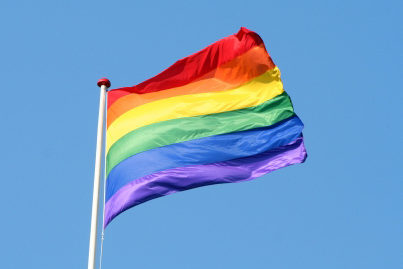
Jan 15, 2013 | News
In particular, the Court recognizes that preventing sexual orientation discrimination is an important and legitimate purpose that justifies restrictions on freedom of religion.
In its judgment in Eweida and Others v. United Kingdom, issued on 15 January, the European Court of Human Rights affirmed that the right to act in accordance with one’s religion may be limited in order to protect others from discrimination based on sexual orientation. The ICJ, the European Region of the International Lesbian, Gay, Bisexual, Trans and Intersex Association (ILGA-Europe) and the International Federation for Human Rights (FIDH) welcome this decision.
Two of the four applications that were considered jointly in Eweida and Others concerned employees who refused to provide services to same-sex couples because of their personal religious beliefs.
The other two applications concerned employer-imposed restrictions on wearing visible crosses at work.
Lillian Ladele was employed by the London Borough of Islington as a marriage registrar.
She had refused to perform same-sex civil partnership ceremonies as part of her job because she believed that civil partnerships were equivalent to marriage and that same-sex unions were contrary to God’s will.
Following her refusal, she was disciplined and ultimately dismissed.
The Court held that Ladele’s employer’s decision not to make an exception for her religious beliefs was both legitimate and proportionate, in light of the Court’s own case-law concerning the right to be free from discrimination on the basis of sexual orientation and the need for same-sex couples to have legal recognition and protection of their relationships.
There was thus no violation of her right to be free from discrimination on the basis of religion.
Gary McFarlane was employed by Relate Federation, a private organisation providing sex therapy and relationship counselling.
He objected to treating same-sex couples and was dismissed.
The Court found that the right balance had been struck between McFarlane’s right to manifest his religious belief and “the employer’s interest in securing the rights of others.”
There was no violation of his right to freedom of religion, either separately or in conjunction with the right to be free from discrimination.
“Article 9 of the European Convention protects the right to manifest one’s religion in public, but this right is not unlimited,” stated Alli Jernow, Senior Legal Advisor of the International Commission of Jurists. “With today’s judgment, the Court upholds the importance of protecting others from discrimination.”
“This is a very timely decision, and particularly important in view of the fact that similar refusals to perform marriages and partnerships of same-sex or refusal to provide services to same-sex couples is a frequent occurrence in other European jurisdictions. This decision should help to guide national governments on the balance between freedom of religion and the right to non-discrimination on the ground of sexual orientation,” stated Evelyne Paradis, ILGA-Europe’s Executive Director.
“The Court’s reaffirmation that same–sex couples are in a similar situation to different-sex couples as regards their need to recognition and protection is an important step forward; that fundamental human right principle should guide all European states in the future,” concluded Souhayr Belhassen, FIDH President.
The ICJ, ILGA-Europe and FIDH had submitted a joint third-party intervention
See also:
European Court of Human Rights’ press release
European Court of Human Rights’ judgment in the case of Eweida and Others v. United Kingdom (Applications nos. 48420/10, 59842/10, 51671/10 and 36516/10) 15 January 2013
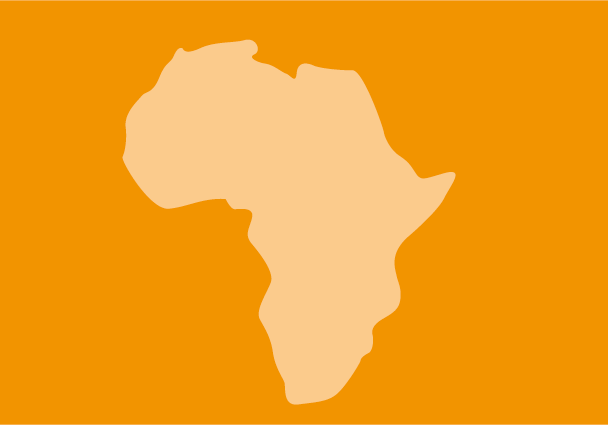
Dec 6, 2012 | News
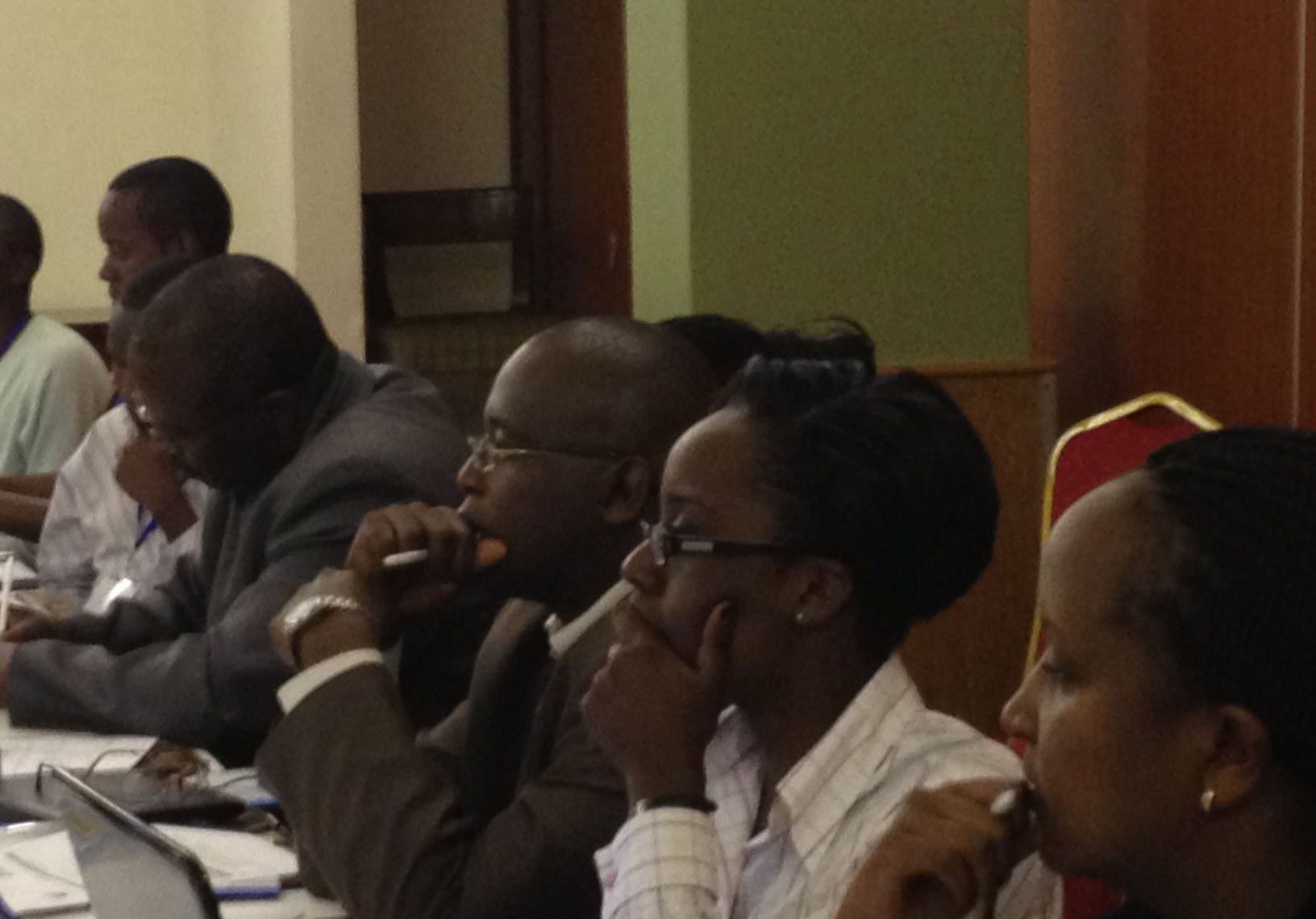 On 6 December 2012, the ICJ and ICJ-Kenya convened a roundtable entitled “LGBT Human Rights” in Nairobi.
On 6 December 2012, the ICJ and ICJ-Kenya convened a roundtable entitled “LGBT Human Rights” in Nairobi.
The event brought together members of the Kenyan bar with LGBT human rights activists for a full discussion of criminal and constitutional law and international human rights standards, as well as possibilities for reform through either judicial or parliamentary processes.
The event was opened by Lawrence Mute, a former national human rights commissioner, signatory of the Yogyakarta Principles, and winner of ICJ-Kenya’s Jurist of the Year award.
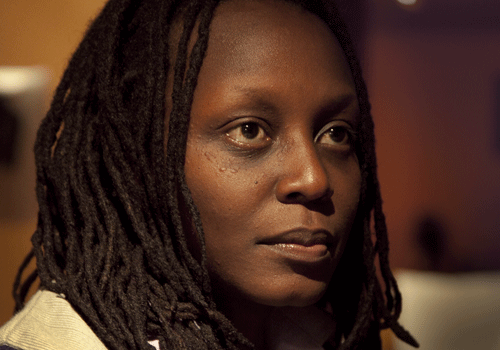
Nov 30, 2012 | News
The ICJ condemns the reintroduction of Anti-Homosexuality Bill in the Ugandan Parliament. The bill has passed out of committee and is expected to come to a floor vote in early December.
According to reports from civil society organizations in Uganda, the bill still contains the death penalty for acts of “aggravated homosexuality.”
In addition, the Anti-Homosexuality Bill criminalizes the promotion of homosexuality, which is defined to include all advocacy activities.
“Adopting the Anti-Homosexuality Bill would be a serious threat to the human rights and human dignity of LGBT individuals and organizations,” said Alli Jernow, Senior Legal Adviser at the ICJ. “Under the Bill, not only might someone face life in prison or the death penalty for being gay, but human rights defenders would also be prevented from speaking out to challenge the law.”
Under the Bill, anyone in authority, such as a teacher or medical professional, who fails to report an offence to law enforcement within twenty-four hours, is liable to three years’ imprisonment.
The ICJ says the bill is dangerous and deadly and urges Parliament to reject it.
Parliament must also reaffirm the rights to non-discrimination, privacy, freedom of expression and freedom of association for all Ugandans, the ICJ adds.
The Anti-Homosexuality Bill has already been used to justify a general clampdown on civil society in Uganda.
Meetings and workshops have been disrupted and advocacy groups working on human rights have been threatened.
In February 2012, the Minister of State for Ethics and Integrity, Simon Lokodo, shut down a capacity-building session for LGBT activists organized by Freedom and Roam Uganda (FARUG) at a hotel in Entebbe and threatened to arrest FARUG’s executive director Kasha Jacqueline Nabagesera (picture above).
In June 2012, police raided a workshop for East African LGBT human rights defenders that had been organized by the East and Horn of Africa Human Rights Defenders Project and they detained participants for several hours.
Minister Lokodo also told the press that he was going to ban 38 organizations that were “sympathetic to LGBT people.”
“If adopted, the bill would clearly violate the human rights of all Ugandans,” Jernow added.
International human rights law, including treaties to which Uganda is a party, prohibit the criminalization of same-sex sexual conduct and forbid the imposition of the death penalty for non-violent conduct, including sexual relations between consenting adults.
International human rights law also guarantees the right of everyone, regardless of sexual orientation or gender identity, to freedom of expression, association and peaceful assembly.
Contact:
Alli Jernow, ICJ Senior Legal Advisor, t + 41 22 979 3823 ; e-mail: alison.jernow(at)icj.org
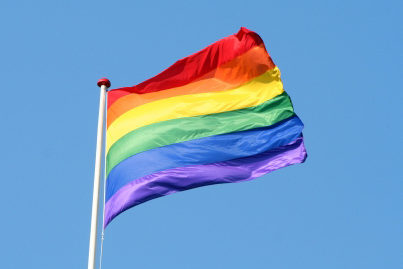
Nov 27, 2012 | News
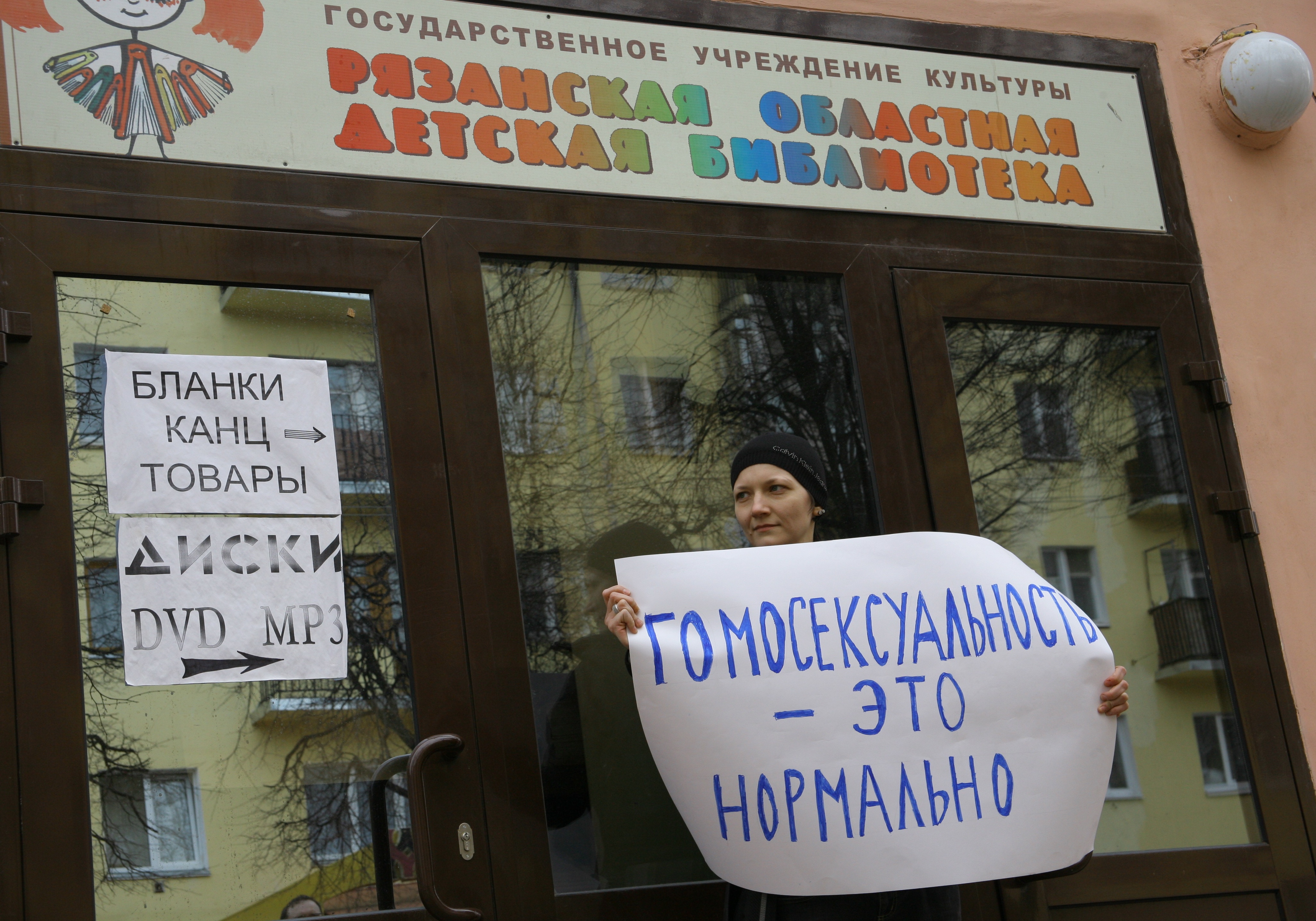 The ICJ and ILGA-Europe welcome the historic decision by the UN Human Rights Committee in Irina Fedotova v. Russian Federation, which was released on 19 November.
The ICJ and ILGA-Europe welcome the historic decision by the UN Human Rights Committee in Irina Fedotova v. Russian Federation, which was released on 19 November.
“We are very pleased with the Committee’s Views in this case and in particular with the recognition that expressing opinions and information about same-sex sexual orientation cannot be limited in the name of public morality,” said Alli Jernow, ICJ Senior Legal Advisor.
In March 2009, Fedotova had displayed posters declaring “Homosexuality is normal” and “I am proud of my homosexuality” near a secondary school building in Ryazan.
The Ryazan Law on Administrative Offences prohibited “public actions aimed at propaganda of homosexuality among minors.” She was arrested, convicted, and ordered to pay a fine of 1,500 roubles.
Fedotova lost her appeal to the district court and the Constitutional Court ruled that the prohibition of information that was “capable of harming health, morals and spiritual development, as well as forming perverted conceptions about equal social value of traditional and non-traditional family relations” could not be considered a violation of the right to freedom of expression.
But the Human Rights Committee held that Russia had violated Fedotova’s rights to freedom of expression and to be free from discrimination.
These rights are guaranteed by articles 19 and 26 of the International Covenant on Civil and Political Rights.
“The decision is especially important because it effectively reverses the position taken by the Committee in the 1982 case of Hertzberg v. Finland, which upheld a ban similar to the one in the Fedotova case,” Jernow added.
The Human Rights Committee ordered the Russian Federation to reimburse the fine paid by Fedotova as well as her legal costs and to ensure that the relevant provisions of domestic law are made compatible with articles 19 and 26 of the Covenant.
Since the Ryazan law was adopted, a number of other regions in Russia have adopted legislation banning “homosexual propaganda.” Activists across the country, including in St. Petersburg, have been arrested and convicted under such laws.
In its decision, the Human Rights Committee emphasized that limitations for the purpose of public morals, which are derived “from many social, philosophical and religious traditions,” could not be based exclusively on a single tradition.
Furthermore, any such limitations “must be understood in light of universality of human rights and the principle of non-discrimination.” The Committee recalled that the “prohibition against discrimination under article 26 comprises also discrimination based on sexual orientation.”
The Committee stated that Russia “has not shown that a restriction on the right to freedom of expression in relation to ‘propaganda of homosexuality’ – as opposed to propaganda of heterosexuality or sexuality generally – among minors is based on reasonable and objective criteria.”
Fedotova’s actions were not aimed at involving minors in any particular sexual activity. Rather, “she was giving expression to her sexual identity and seeking understanding for it.”
“We hope this landmark decision will send a strong signal to Russia to reconsider such discriminatory steps and to abandon any legislative proposals criminalising ‘homosexual propaganda’,” said Evelyne Paradis, Executive Director of ILGA-Europe.
The ICJ had submitted a legal opinion, which the Committee excerpted in detail, arguing that the law was discriminatory and that limitations on rights could not discriminate. Earlier this year, the ICJ and ILGA-Europe published a briefing paper titled “Homosexual Propaganda Bans: Analysis and Recommendations.”
Contact:
Alli Jernow, ICJ Senior Legal Advisor, t + 41 22 979 3823
Juris Lavrikovs, ILGA-Europe, t + 32 2 609 54 16 and + 32 496 708 375











